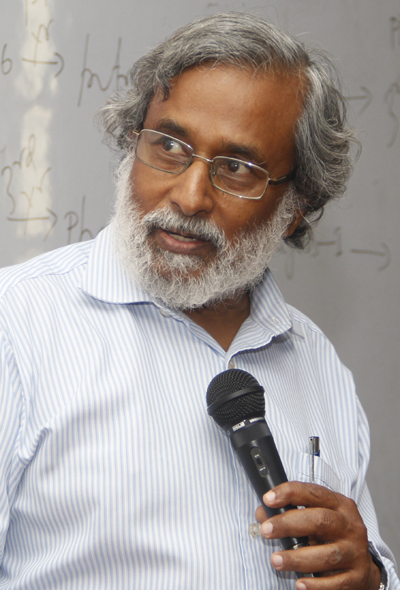
Khondkar Siddique-e Rabbani
Bangladeshi Biomedical Physicist who is notable for developing the Focused Impedance Measurement method
Khondkar Siddique-e Rabbani is a Bangladeshi Biomedical Physicist and is notable for developing the Focused Impedance Measurement method. In 2008, he was awarded the Academy Gold Medal by Bangladesh Academy of Sciences for his contribution to physical sciences in Bangladesh. Professor Rabbani completed his bachelor's from University of Dhaka and master's from Islamabad University in 1970 and 1972, respectively. He then earned his PhD in Microelectronics as a Commonwealth Scholar from the University of Southampton in 1978. He then joined as a faculty member of the Department of Physics at the University of Dhaka. In 2008, he became the founding Chairperson of the post-graduate Department of Biomedical Physics and Technology (BMPT) at the University of Dhaka.
Professor Rabbani has been working to improve the condition of economically deprived people of Bangladesh through innovating low-cost and easily accessible technologies. He has three major innovations cited by Bangladesh Academy of Sciences: ‘A simple and low cost method to destroy diarrhoeal germs in water using solar radiation‘, a method for getting surface water free of Arsenic made drinkable; a localized electrical impedance technique named ‘Focused Impedance Method’ (FIM), having the potential to study, diagnose or characterize medical conditions including lung, stomach and vascular functions and some cancers; a nerve conduction measurement technique known as ‘Distribution of F-latency’ (DFL), that can give inner profile of conduction velocity of motor nerve fibres in a nerve trunk, for which no clinically suitable method existed before.
Professor Rabbani, the director of Dhaka University Telemedicine Program conducted by the Department of Biomedical Physics and Technology (BMPT) of Dhaka University has been awarded the 3rd Commonwealth Digital Health Award in Telemedicine category for outstanding contribution to develop healthcare quality in rural areas of Bangladesh. The award ceremony was held in Colombo, Sri Lanka in 2018.